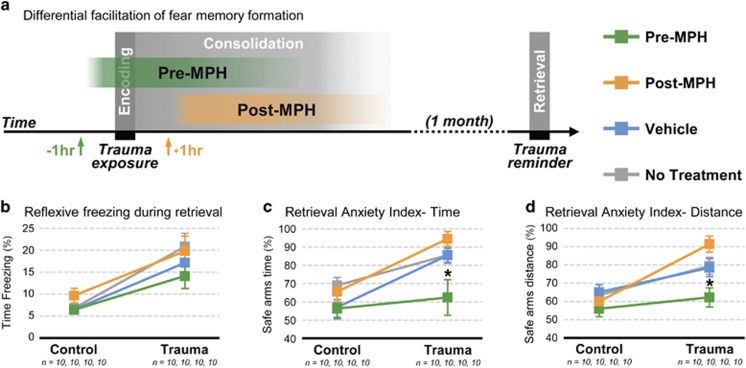Figure 2.
To test whether excessive fear-related responses develop from inaccurate representations of aversive associations, MPH was administrated to facilitate memory processing during associative fear conditioning and behavioral responses were assessed during fear memory retrieval one month later. (a) Logical concept design. (b) The administration of MPH before the encoding and consolidation of the aversive association did not increase reflexive fear responses during memory retrieval; nor did it block the basic learning of fear- all trauma groups significantly differed from the control groups. (c, d) Significantly differing from the rest of the trauma groups, the Pre-MPH trauma-exposed rats exhibited a similar to the control groups’ choice of risk behaviors during memory retrieval, as measured by the anxiety indices for (c) the ratio of time spend in the safe arms, and (d) the ratio of distance traveled in the safe arms of the WAZM. n, number of animals analyzed; *P<0.05 (Bonferroni post hoc). Error bars represent mean±s.e.m. MPH, Methylphenidate; WAZM, water associated zero maze.

